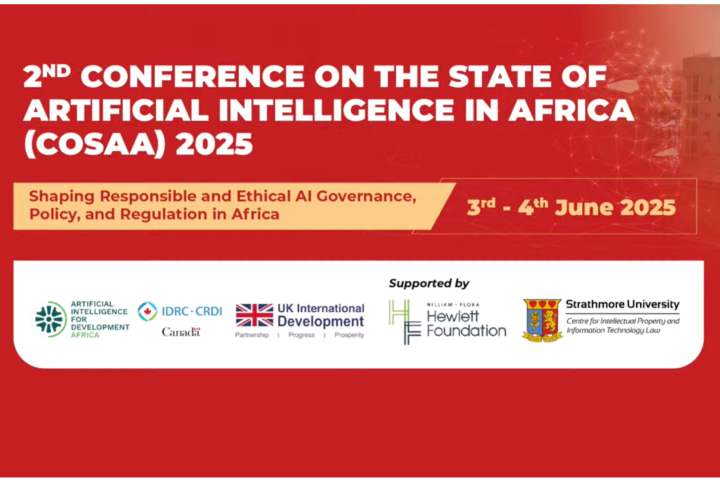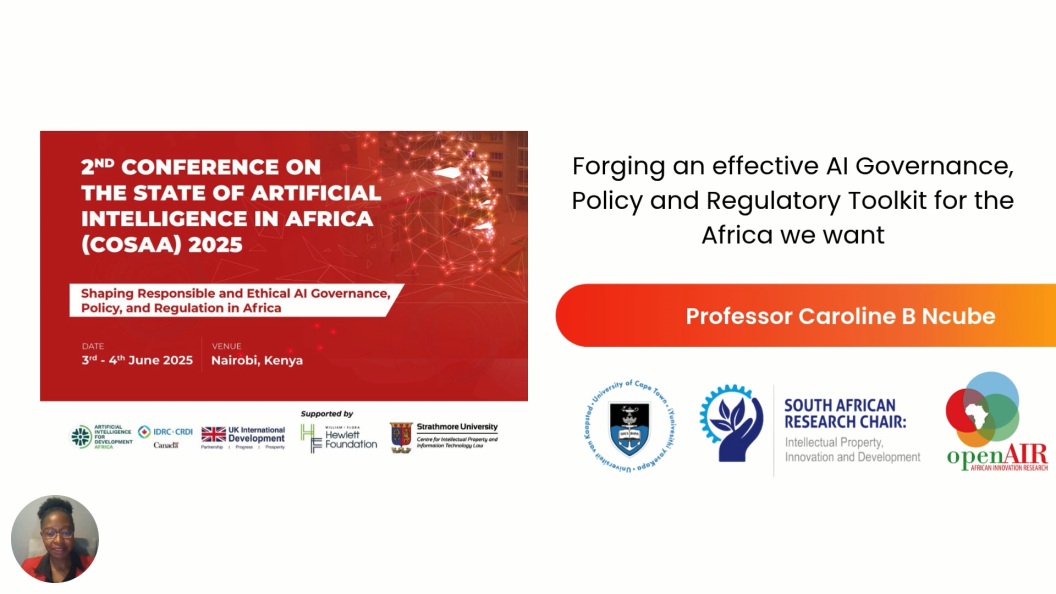Event Report: The 2nd Conference on the State of Artificial Intelligence in Africa (COSAA 2025)

The Centre for Intellectual Property and Information Technology Law (CIPIT) at the University of Strathmore hosted the 2nd Conference on the State of Artificial Intelligence in Africa (COSAA 2025) on June 3rd and 4th, 2025, in Nairobi, Kenya. Our team joined the proceedings via zoom. The conference had a rich programme with several keynotes lined up. The opening keynote was presented by Prof Caroline Ncube virtually. The entire conference was live steramed and can be watched on CIPIT's YouTube Channel.

Key Takeaways on AI and IP
COSAA 2025 raised critical reflections on how Africa should respond to the intersection of AI and intellectual property (IP). Prof. Jake Okechukwu highlighted the challenges open access poses for publishers and creators. He urged Africa to revisit its IP frameworks, deciding what to retain and what to reform, to ensure fair credit and compensation.
Innovator Mukiri Mwirigi pointed to widespread uncertainty and fear around IP protection, noting that many lack clarity on what is being protected and how. Crucially, speakers challenged Africa to decolonise its understanding of IP. Drawing on African communal identity, they questioned whether AI and IP should mirror Western notions of invention and ownership. Instead, African epistemologies, where knowledge is communal and passed through generations, offer alternative frameworks.
Representation was a strong theme: the need for African stories, voices, and cultural content in datasets was emphasised. Visual and creative artists must lead this charge, ensuring Africa is seen and heard in AI systems.
In relation to agentic AI, Professor Chijioke Okorie, who delivered a Keynote Address, stated that the law will hold individuals responsible for agentic AI liable and subject to imprisonment. To arrive at this conclusion, she based her argument on the analogy of agentic AI to juristic persons (companies), where directors can be convicted despite the juristic person having its separate legal personality.
Regarding innovation, Professor Okorie defined it as the “process of taking an idea from inception to impact.” She dissected AI into two segments in relation to innovation. AI, she argued, can be a tool for innovation, moving from an idea to impact. On the other hand, innovation can also refer to the way AI is designed, developed, and deployed. Professor Okorie also emphasised that owning intellectual property alone is insufficient; we must explore how to leverage such ownership effectively, to get into rooms, and to benefit.
As AI reshapes the world, Africa must reclaim its narrative on its own terms.